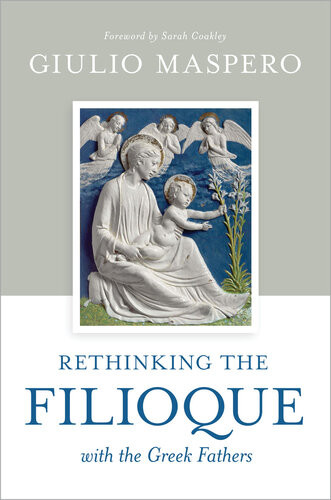

Most ebook files are in PDF format, so you can easily read them using various software such as Foxit Reader or directly on the Google Chrome browser.
Some ebook files are released by publishers in other formats such as .awz, .mobi, .epub, .fb2, etc. You may need to install specific software to read these formats on mobile/PC, such as Calibre.
Please read the tutorial at this link: https://ebookbell.com/faq
We offer FREE conversion to the popular formats you request; however, this may take some time. Therefore, right after payment, please email us, and we will try to provide the service as quickly as possible.
For some exceptional file formats or broken links (if any), please refrain from opening any disputes. Instead, email us first, and we will try to assist within a maximum of 6 hours.
EbookBell Team

4.8
84 reviewsDoes the Holy Spirit proceed only from the Father—or also from the Son?
Protestants and Roman Catholics might immediately answer the latter and wonder why their Orthodox friends protest. Historically one of the major obstacles to Christian unity across the East-West divide, the Filioque—the part of the Latin translation of the Nicene Creed claiming the Holy Spirit proceeds from the Father and the Son—still bedevils Trinitarian theologians today.
How can the church possibly achieve unity in the face of this dogmatic difference, implacable for over a millennium? Giulio Maspero shows us how the answer can be found in history. In the fourth century, when Pneumatomachians denied the divinity of the Holy Spirit, the Cappadocian Fathers came to a relational understanding of the most elusive person of the Trinity: the Holy Spirit was conceived of as the glory and power eternally exchanged between the Father and the Son. In fact, this understanding is still fundamentally shared by Eastern and Western Christians. Examining Syriac traditions as an example, Maspero observes that both Syriac and Latin lack the linguistic precision to describe the nature of the Holy Spirit’s procession from the Trinity in the same way as Greek, hence the ambiguous Filioque.
Yet what might be seen on the surface as a mere translation error reveals deep questions about the triune nature of God. With rigorous theological argument, Maspero ultimately proposes a way forward for East and West—one based not on centuries of polemics, but on a common tradition established by the Greek Fathers. Essential reading for the ecumenically minded theologian, Rethinking the Filioque with the Greek Fathers takes a crucial step toward Christian unity.